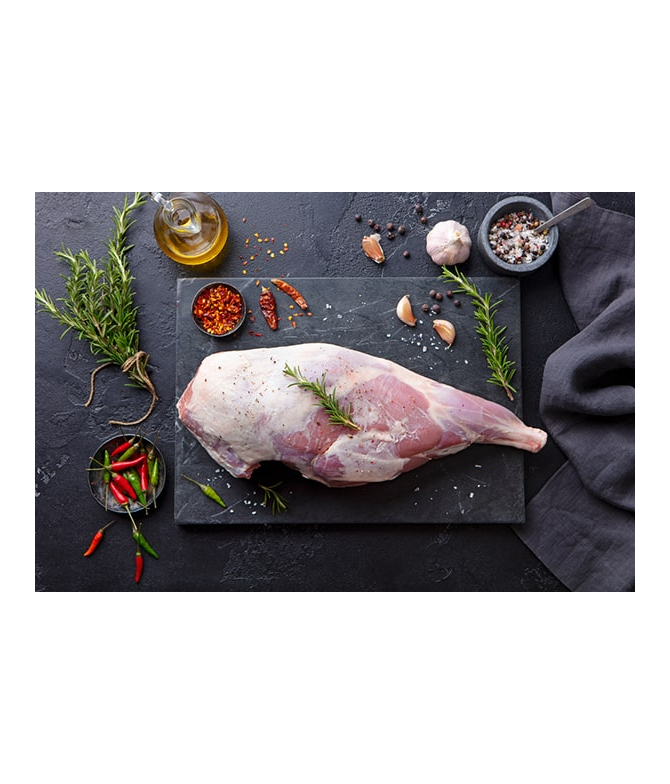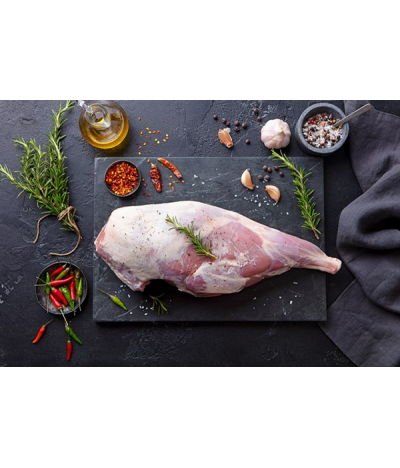


Allah's Messenger (saws) said: Sacrifice only a grown-up animal, unless it is difficult for you, in which case sacrifice a ram (of even less than a year, but more than six months' age).
The Prophet (saws) said: (Of the Sacrifice) eat of it, and feed of it to others, and store of it.
A person offering a sacrifice may consume, without any restrictions, any amount of meat he may desire. He may likewise give away, or offer in charity any amount he may wish. Some scholars say that one may eat half, and give away the other half in charity, while others say that the meat be divided into three parts. Of these one may keep a part, distribute a part, and give in charity the third part.

“On the day of al-Hudaybiyah we offered the sacrifice with the Messenger of Allaah (peace and blessings of Allaah be upon him), a camel on behalf of seven and a cow on behalf of seven.
We performed Hajj with the Messenger of Allaah (peace and blessings of Allaah be upon him), and we sacrificed a camel on behalf of seven and a cow on behalf of seven.
“A cow on behalf of seven and a camel on behalf of seven.” Classed as saheeh by al-Albaani in Saheeh Abi Dawood.

« كُلُّ غُلَامٍ مُرْتَهَنٌ بِعَقِيقَتِهِ, تُذْبَحُ عَنْهُ يَوْمَ سَابِعِهِ, وَيُحْلَقُ, وَيُسَمَّى »
« Every boy-infant is a pledge agains this ‘Aqiqah, to be slaughtered on the seventh day, he is given a name and his headis to be shaved. »
(Abu Dawud and an-Nasa’I)
Aqiqah, in Islamic terminology, is defined as sacrifice of an animal on the occasion of a child's birth.
The Aqiqah is a strongly recommended sunnah act for the parents who are able to performit
The Aqiqah is a strongly recommended sunnah act for the parents who are able to performit
There are many benefits in the performance of Aqiqah. One is the announcing the birth of the baby. Being bestowed a child is a great blessing from the Creator. Another Purpose Is Inviting Family Members, neighbors, and friends to celebrate the blessed occasion. The poor should be included in the celebration by offering them food and meat served on this occasion.
From the wisdom behind the Aqiqah is expressing gratitude to Allah for the blessing of the child. It is also a means of to Allah ion order to protect and care for the child.


(£ 8.50 Per Kilo)
Long-known as the "hind leg", the leg is the hind limb of the lamb. It corresponds to the tenderloin and the hind leg of the beef. In the veal, almost plus the knuckle, the knuckle nut and the shank. The whole leg consists of the shortened leg and the saddle, the upper part of the hip. The saddle of the leg should not be confused with the English saddle, i.e. the tenderloin. The saddle of the leg must always be boneless and tied.
 Security policy (edit with module Customer reassurance)
Security policy (edit with module Customer reassurance)
 Delivery policy (edit with module Customer reassurance)
Delivery policy (edit with module Customer reassurance)
 Return policy (edit with module Customer reassurance)
Return policy (edit with module Customer reassurance)
Leg meat is very tender and is suitable for roasting. To sear the meat, preheat the oven to maximum (TH. 8 - 240°C). After 10 minutes of cooking, lower the temperature (TH. 7 - 210°C).
It takes 10 to 15 minutes of cooking time per pound, but it is better to ask the advice of the butcher.
For salt-crusted cooking, coat the leg of lamb with salt dough and leave it to rest for 12 hours before cooking.
Is it necessary to add salt before or after cooking? In theory, it is not advisable to salt the meat before cooking as this dries it out. It is better to do this just after the formation of a crust or wait until the end of cooking.